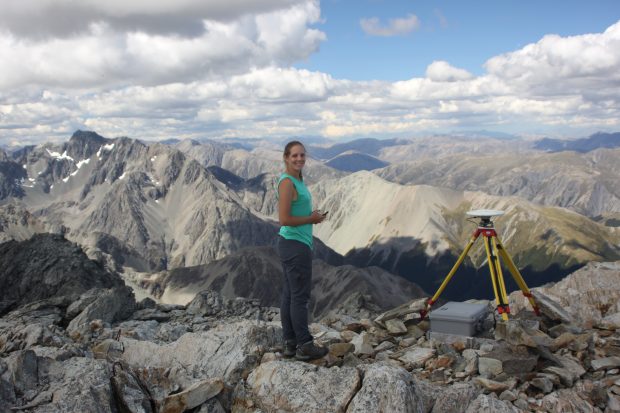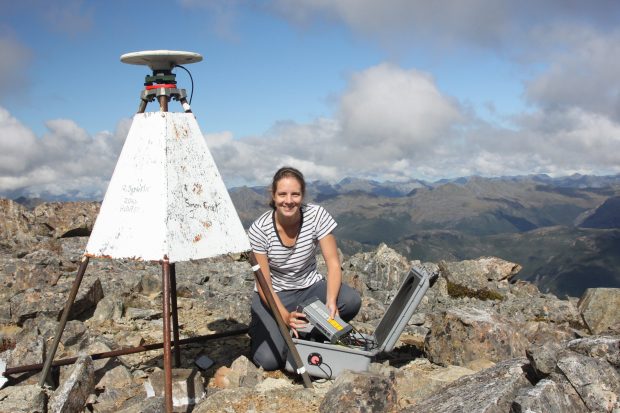
Thursday 13 June, 2019
Fulbright-EQC award winner talks about her journey to understand how earthquakes shape our land (video below)
Dropping out of a helicopter to research the impact of the Kaikōura earthquake was one of many adventures for geophysics graduate Danielle Lindsay.
The Wellington researcher will soon be heading to the University of California, Berkeley to complete a PhD in Geophysics and use that knowledge to help prepare her fellow Kiwis, as this year’s recipient of the Fulbright-EQC Graduate Award in Natural Disaster Research.

Danielle says that during her graduate studies, it has been sobering to realise how vulnerable people can be to devastating natural disasters.
“During my graduate studies, I have realised how important understanding the fundamental geological forces driving these events is, and how this knowledge helps society better prepare for and mitigate the effects of natural disasters.”
The $US44,000 ($NZ66,000) Fulbright-EQC Award is funded by the Earthquake Commission and will enable Danielle to undertake her PhD research that focuses on earthquakes, slow slip events and how they interact.
Slip events and possible links with large earthquakes
“Some of the big questions facing New Zealand at the moment relate to the interactions of locked and slipping patches of the Hikurangi Subduction Zone, and how ruptures could propagate between them and their potential magnitudes,” says Danielle.
“I want the research I complete to have a real impact on the society I live in,” says the Victoria University of Wellington student.
EQC’s Hilary Blake says Danielle’s research will add to the body of scientific knowledge about slow slip earthquakes. “This is a very important area of research for New Zealand as we know slow slip earthquakes are involved in some of our biggest risk areas, like the Hikurangi subduction zone. The more we can understand the link between slow slip events and larger earthquakes, the better information we can give communities to help prepare.”
Applications for all New Zealand Graduate Awards, including the Fulbright-EQC Graduate Award in Natural Disaster Research, are due 1 August annually.
About the Earthquake Commission (EQC)
The Earthquake Commission (EQC) is a Crown entity, established under the Earthquake Commission Act 1993. The Earthquake and War Damages Commission began in 1945 following the 1942 Wairarapa Earthquake. In the years since, the role of EQC has changed significantly.
Today, our core functions are as follows and our statutory functions are set out in section 5 of the Act.
- We provide natural disaster insurance for
residential property (contents, dwellings and some coverage of land). - We administer the Natural Disaster Fund (NDF),
including its investments and reinsurance. - We fund research and education on natural disasters and ways of reducing their impact.
These three core functions are essential for New Zealand to effectively manage natural disaster risk. Find out more on the EQC website.
About Fulbright New Zealand
Fulbright New Zealand opens doors for tomorrow’s leaders and thinkers through life-changing educational and cultural exchanges between New Zealand and the United States.
The Fulbright Forum is a speaker series aimed at addressing topical areas of research that affect our world. The recent Fulbright Women in STEM panel in May 2019 included Fulbright alumnae Helen Ferner, Technical Director in Structural Engineering at BECA New Zealand, and is available as a podcast audio.
Fulbright New Zealand offers exchange awards annually. Fulbright New Zealand has granted more than 3,000 exchange awards, sending over 1,900 New Zealand graduate students, artists, academics, teachers and professionals on exchange to the US and welcoming over 1,570 Americans on exchanges to New Zealand. The programme is jointly funded by the US and New Zealand governments with additional funding from award sponsors, private philanthropists and alumni donors.
